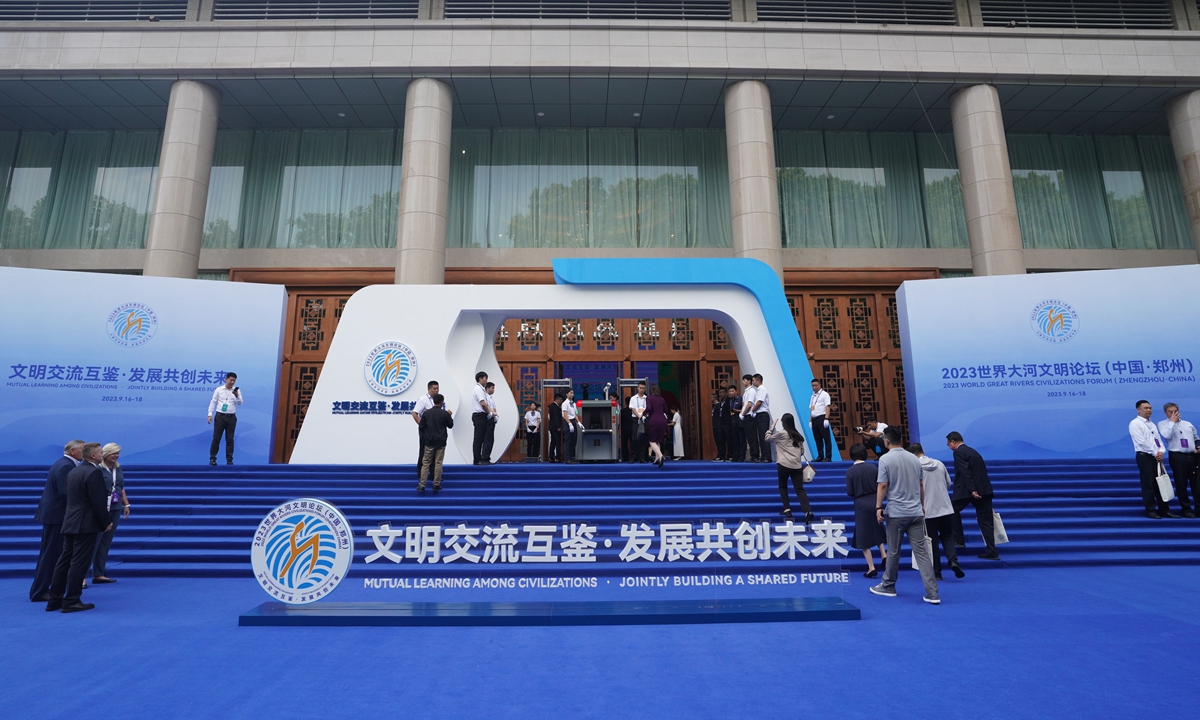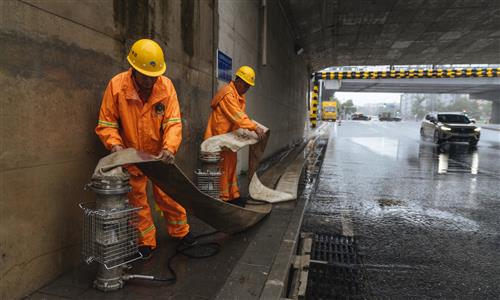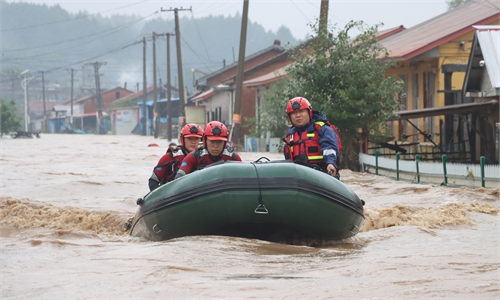ARTS / CULTURE & LEISURE
International forum explores possibility of great rivers' future development

Photo: Courtesy of 2023 World Great Rivers Civilizations Forum
The Yellow River, the cradle of Chinese civilization, is not only a source of ecological and cultural richness, but also a main contributor to the country's agriculture. At a forum on Sunday, participants emphasized the Yellow River's environmentally friendly transition in its future development and its cultural ties with the world.At the 2023 World Great Rivers Civilizations Forum, the Zhengzhou Manifesto was also introduced. The manifesto advocates respecting the characteristics of each river civilization, taking strong measures to protect the cultural heritage of river basins, and utilizing the modern values of ancient civilizations to promote the development of modern civilization.
Held in Zhengzhou, Central China's Henan Province on Sunday and Monday, the forum presents the achievements in ecological restoration and cultural development under China's major Yellow River strategy proposed in 2021, which focuses on the sustainable development of the Chinese nation and Chinese civilization.
"Under such a major strategy, today's protection and development of the Yellow River cannot be separated from the advancements in culture and ecological restoration," Zhang Chao, a government official from the Huiji district of Zhengzhou, told the Global Times.
"For example, the protection and development of the Yellow River is transform-ing toward an eco-friendly mode, while at the same time, we are also nurturing the Yellow River Cultural Park to tell the visitors about the origin and his-tory of the Yellow River civilization. The two complement each other," Zhang added.
Set to become an annual event, the forum held by the city is the country's first transnational forum on the study of great river cultures.
A group of 16 scholars from various ancient civilizations that flourished along great rivers, such as India, Egypt and Russia, visited China to participate in the forum and share their thoughts and ideas on archaeological research. Meanwhile, over 40 Chinese archaeologists will also join the academic discussion in Henan, a province with a long history that can be traced back to nearly 4,000 years ago, when the Shang Dynasty (c.1600BC-1046BC) was established in the region.
In addition to such topics as the ecological protection and high-quality development of the Yellow River Basin, three other sub-forums focused on diversity and mutual learning of the world's great river civilizations, inheritance and promotion of Chinese civilization and Yellow River culture, and the dialogue between Chinese civilization and world civilizations.
Christopher John Evans, senior fellow at the McDonald Institute for Archaeolog-ical Research at the University of Cambridge, noted that in terms of world civilizations, rivers have been a cradle for all of them.
"A lot of results are clearly based on agricultural systems, and show potential to how to increase the population and also transportation. So there's a lot of commonality in terms of rivers in that way," said Evans, adding that be it the Yellow River or the Nile, these two have always been tremendously important areas of study archaeologically speaking."
"While not all major rivers become great civilizations, they are still very important as cradles of human life, and they show the importance of communication and agriculture together."
Meanwhile, several domestic experts discussed the relationship between Yellow River civilization, Chinese civilization and world civilizations.
"From the archaeological discoveries, the upper, middle and lower reaches of the Yellow River are all the origins of our Chinese civilization. Being the birth place of the Xia, Shang and Zhou dynasties, the Yellow River laid the main vein of our Chinese civilization," Liu Haiwang, director of the Henan Cultural Relics and Archaeology Research Institute, said in the interview.
However, from the archaeological achievements, the multi-regional exchange and simultaneous development of Chinese civilization also demonstrate the diversity and unity of Chinese civilization, noted Wang Wei, chairman of the Chinese Archaeology Council.
In addition, a "Yellow River Basin Ecological Protection and High-quality Devel-opment Report" was also released at the forum. The report elaborated on food safety along the Yellow River, where total grain output of the nine provinces and regions along the river accounted for 35.3 percent of the country's total in 2022.
The forum invited about 360 guests, 60 foreign and 300 domestic. After the forum closes, a Yellow River Culture Month will continue to present cultural events, during which a total of 28 entertainment-orientated events will be carried out, including poetry forums, chorus weeks and street dance competitions.
Roughly 200 kilometers of the Yellow River passes through Zhengzhou, a city in the middle and lower reaches of the Yellow River and the birthplace of China's oldest agricultural civilization. However, historically, it also faced bank collapses many times, so solving the dyke breaches used to one of the most important tasks in this city.



